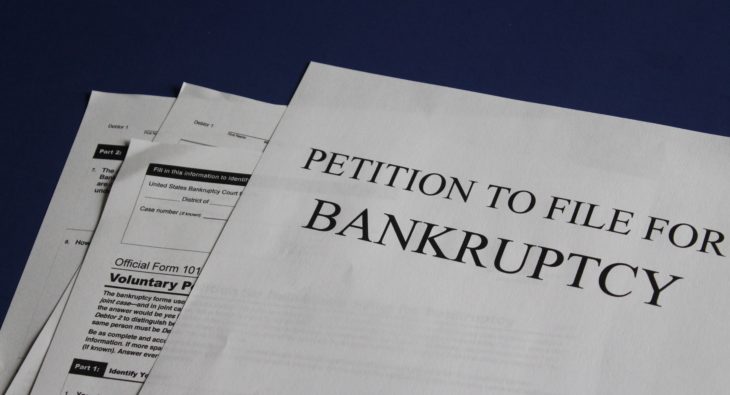What Are Bankruptcy Exemptions and How Can They Help Me?
Many people fear or try not to consider bankruptcy because they think it means they will lose their home, car, and other daily necessities. Those that believe these misconceptions are not aware of Nevada Bankruptcy Exemptions. Bankruptcy exemptions are laws that protect certain property during bankruptcy. It essentially means that qualifying property cannot be repossessed, liquidated, or taken to collections by creditors or the bankruptcy court despite the individual filing for bankruptcy. These exemptions exist primarily for Chapter 7 bankruptcy, but apply in part to Chapter 13 bankruptcy filings as well.
Chapter 13 Bankruptcy Exemptions
Since you’re not giving up any property or assets when filing a Chapter 13 bankruptcy, the bankruptcy exemptions will simply play a role in how much you will need to repay in your new payment plan. Any exempt property will not be included in the repayment amount.
Most Common Nevada Bankruptcy Exemptions:
Homestead
Up to $605,000 in equity in a home or mobile home.
For example: Suppose that you own a home worth $800,000 and owe $200,000 on the mortgage, giving you $600,000 of equity. If you file Chapter 7 bankruptcy, you can record and claim the homestead exemption to protect all of the equity in your home.
Personal Property
- Health aids
- Keepsakes and pictures
- Up to $5,000 of equity in books, art, musical instruments, and jewelry
- Up to $12,000 of equity in appliances, furniture, electronics, household goods, clothing, home, and yard equipment
- Burial plot or funeral service money held in trust
- Collections of ores, geological specimens, paleontological remains, which are numbered in reference books
- Escrow and mortgage impound accounts
- One gun and uniforms (if required by law)
- Up to $16,150 in personal injury awards
- Victim crime restitution
- Income tax refunds attributable to the state or federal Earned Income Credit
- Wrongful death awards to survivors to the extent necessary for support
- Future earnings compensation to the extent necessary for support
Motor Vehicle
Up to $15,000 of motor vehicle equity, or unlimited equity in a motor vehicle equipped for a person with a disability
For example. Supposed you own a car worth $18,000. You owe the dealership $12,000, leaving you $6,000 of equity in the car. If you file Chapter 7 in Nevada, you can protect all of the equity using the Nevada motor vehicle exemption.
Public Benefits
- Aid to blind, aged, disabled, and public assistance
- Worker’s compensation (industrial insurance)
- Payments received under the Social Security Act
- Public assistance for children
- Unemployment compensation
- Vocational rehabilitation benefits
Retirement accounts and benefits
- Public employees’ retirement benefits
- ERISA-qualified pension or stock bonus plan (up to $1,000,000)
- Qualified retirement accounts
Wages and Income
75% of wages or 50 times the federal minimum wage, whichever is more
Tools of the Trade
- Up to $4,500 of equity in farm trucks, tools, stock, equipment, and seed
- Up to $4,500 of equity in a miner or prospector’s dwelling, working mining claim, cars, tools, and appliances
- Arms, uniforms, and accouterments that you are required to keep
- Up to $10,000 in equity in library equipment, tools, inventory, and supplies
Wildcard
Up to $10,000 of any personal property
It’s important to note a few key points when applying bankruptcy exemptions in Nevada:
- Federal Bankruptcy Exemptions
Though Federal Law has universal bankruptcy exemptions, the state of Nevada has opted out of these. Therefore, any exemptions that are not also noted as Nevada bankruptcy exemptions are not applicable for those filing for bankruptcy in the state of Nevada.
- Joint Bankruptcy Filing
If a married couple files bankruptcy jointly, each spouse is eligible for the full bankruptcy exemption amount. This means that the qualifying amount can essentially be doubled for each asset as long as both spouses own the asset/property.
- Nevada Residency Requirement
To be eligible for Nevada Bankruptcy Exemptions, you must be a resident of Nevada for at least 730 consecutive days prior to filing.
The list of Nevada Bankruptcy Exemption is vast and designed to protect a variety of property and assets. Be sure to discuss your specific situation or concerns with an experienced bankruptcy attorney to ensure your assets are protected during bankruptcy. To schedule a meeting, contact our office at (702) 998-1188, info@ljawlv.com, or by scheduling a consultation online.
For more information on filing for bankruptcy, check out our Bankruptcy Law FAQ and Bankruptcy Law TV Playlist on Youtube.

